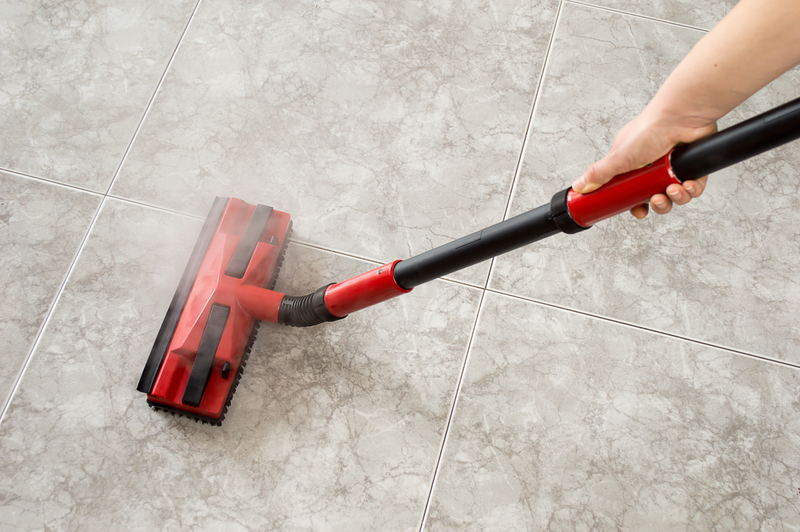The Importance of Maintaining High Air Quality in Living and Business Spaces
Posted on 18/09/2025
The Importance of Maintaining High Air Quality in Living and Business Spaces
Air quality is a measure of the cleanliness and safety of the air that surrounds us. Whether at home, in the office, or other commercial spaces, high indoor air quality plays a vital role in safeguarding our health, comfort, and productivity. In today's modern world, where individuals spend up to 90% of their time indoors, maintaining high air quality in living and business environments is more important than ever before.
Understanding Air Quality: What Is It and Why Does It Matter?
Indoor air quality (IAQ) refers to the condition of the air within and around buildings, especially as it relates to the health and well-being of occupants. High air quality means minimal pollutants, sufficient ventilation, and balanced humidity levels. Poor indoor air quality can lead to a host of adverse effects--from short-term discomfort and decreased productivity to long-term health issues.
Common Indoor Air Pollutants
- Dust and Particulate Matter - tiny particles from outdoors, household items, and human activity
- Volatile Organic Compounds (VOCs) - released from paints, cleaning agents, furniture, and building materials
- Mold and Mildew - resulting from excess moisture and poor ventilation
- Carbon Monoxide and Other Gases - generated from combustion appliances, tobacco smoke, and vehicle exhausts
- Pet Dander and Allergens - originating from pets, pests, and plants
Being aware of these contaminants is the first step to maintaining proper air quality in homes and offices.

Health Effects of Poor Air Quality
The importance of maintaining high air quality in living and business spaces cannot be overstated. Deteriorating indoor air quality is linked to a wide spectrum of health problems.
Short-Term Consequences
- Headaches and Fatigue
- Eye, Nose, and Throat Irritation
- Allergic reactions
- Coughing and Sneezing
- Worsening of asthma symptoms
Long-Term Risks
- Respiratory diseases such as chronic bronchitis and asthma
- Increased risk of cardiovascular disease
- Cancer (including lung cancer associated with radon and asbestos exposure)
- Damage to organs and nervous system
- Negative impact on child development
These health issues highlight the undeniable significance of optimizing air quality in both residential and commercial buildings.
Air Quality and Productivity in the Workplace
When it comes to business spaces, the importance of indoor air quality takes on an additional dimension. Not only does it protect the well-being of employees and clients, but it also significantly affects performance and workplace morale.
The Link Between Air Quality and Work Performance
A variety of studies have established the following connections:
- High indoor air quality is directly related to improved cognitive function and concentration.
- Poor office air quality leads to higher absenteeism and loss of productivity.
- Maintaining an optimal indoor climate can enhance employee satisfaction and reduce turnover rates.
Employers who prioritize clean air in business environments do not only protect their workforce but also invest in the long-term success of their organizations.
Key Benefits of Maintaining High Air Quality in Homes and Businesses
- Enhanced Health and Well-being: Pure air reduces the risk of allergies, respiratory infections, and other chronic conditions.
- Reduction in Sick Building Syndrome (SBS): Good air quality mitigates symptoms like headaches, fatigue, and irritation linked to the workplace or home environment.
- Increased Energy and Productivity: Employees and family members alike enjoy sharper focus, improved mood, and higher performance.
- Improved Sleep Quality: Breathing cleaner air supports more restful and restorative sleep, especially for children and the elderly.
- Protection of Belongings and Building Integrity: High air quality prevents mold growth and reduces wear on furniture and infrastructure.
Factors That Impact Indoor Air Quality
It's essential to understand that many elements influence air quality in living and business settings. Here are some of the most significant:
- Ventilation: Adequate airflow reduces accumulation of pollutants and controls humidity.
- Cleaning Practices: The type and frequency of cleaning affect the amount of contaminants present.
- Building Materials: Some paints, glues, carpets, and furniture emit VOCs and other hazardous chemicals.
- Outdoor Air Quality: Pollution from outside can find its way indoors, especially in urban areas.
- Humidity Control: Air that is too humid or too dry can promote mold growth or respiratory discomforts.
- Occupant Activities: Cooking, smoking, and the use of scented products contribute to the air burden.
How to Improve and Maintain High Air Quality
Proactive measures are essential to keep air quality high in both homes and offices. Here are important steps to take:
Main Strategies for Clean Indoor Air
- Regular Ventilation: Open windows when weather allows or use mechanical ventilation systems for fresh air exchange.
- Air Purification: Consider using HEPA air purifiers to capture fine particles, allergens, and pathogens.
- Humidity Regulation: Utilize dehumidifiers or humidifiers to maintain ideal humidity levels (30-50%).
- Source Control: Identify and remove or minimize emission sources, such as off-gassing materials, mold, and strong chemicals.
- Frequent Cleaning: Clean and vacuum floors, carpets, and upholstery regularly using HEPA-filtered devices.
- Green Building Materials: Choose low-VOC or VOC-free paints, finishes, and furnishings.
Special Tips for Businesses
- Install high-performance HVAC systems with regular filter changes and maintenance schedules.
- Monitor CO2 and pollutant levels with air quality sensors and address issues promptly.
- Provide guidelines for fragrance-free workplaces and restrict indoor smoking.
- Educate staff about the importance of maintaining high office air quality.
Specific Home Improvements
- Place doormats and remove shoes at entrances to minimize dust entry.
- Use natural or non-toxic cleaning products to limit chemical exposure.
- Address leaks and water issues immediately to prevent mold growth.
- Ensure all fuel-burning appliances are well-ventilated and regularly serviced.
Technological Advancements in Air Quality Monitoring
The modern era offers a host of technological solutions to help maintain optimal air quality. These tools are especially valuable for offices and commercial properties where multiple factors contribute to indoor air conditions.
- Smart air quality monitors: These devices continuously track the levels of pollutants, humidity, and temperature, sending real-time alerts to your phone or building management systems.
- Automated HVAC controls: Integration of AI and IoT for smart ventilation, air filtration, and environment adjustments.
- Automated purification systems: Advanced air purifiers can detect and remove specific contaminants as needed.
Utilizing these technologies enables proactive management, minimizing risks while ensuring compliance with health and safety standards.
Legal and Regulatory Considerations
Numerous jurisdictions have established minimum standards for indoor air quality in offices, schools, and public spaces. Business owners and building managers should be familiar with:
- Occupational Safety and Health Administration (OSHA) requirements
- Environmental Protection Agency (EPA) guidelines
- Local building codes and ventilation mandates
Meeting or exceeding these regulations not only demonstrates care for the well-being of occupants but also shields businesses from legal liabilities and compliance fines.

Frequently Asked Questions About Air Quality
What is considered high air quality indoors?
High air quality refers to air that is free of harmful concentrations of pollutants, is properly ventilated, and maintains suitable humidity levels. It typically includes low levels of formaldehyde, VOCs, carbon monoxide, and particulate matter, along with a healthy balance of oxygen and carbon dioxide.
How often should indoor air quality be checked in offices?
Businesses should monitor air quality regularly, at least every quarter, or whenever there is a complaint or renovation, to address problems before they escalate.
Are air purifiers effective against viruses like COVID-19?
HEPA filters and certain technologies like UV-C purifiers can capture or destroy microorganisms, including some viruses, contributing to safer indoor environments. However, they should be part of a comprehensive air quality strategy.
Conclusion: Clean Air as a Fundamental Need
From protecting our health to enhancing performance and ensuring regulatory compliance, the importance of maintaining high air quality in living and business spaces is indisputable. As urbanization increases and our understanding of environmental health deepens, the demand for clean indoor air will continue to grow.
Whether as a homeowner or business leader, making air quality a priority pays substantial dividends--in wellness, productivity, and peace of mind. By adopting preventive habits, leveraging advanced technologies, and staying informed about potential hazards, it is possible to create safer, more comfortable, and more inviting environments for everyone.
Let's all play our part in preserving high air quality for our families, colleagues, and communities.
- Monitor your indoor air regularly
- Ventilate and purify your spaces
- Reduce contaminant sources
- Stay updated on the latest air quality recommendations and standards
Your well-being and success start with the air you breathe.




